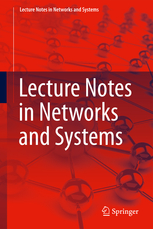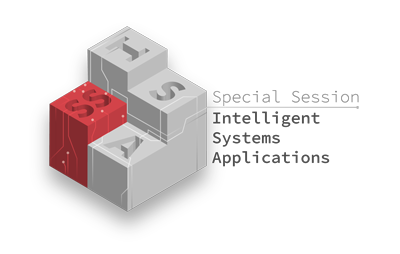Scope
The enforcement of security and privacy notions are widely considered as the main barriers for the design and development of IoT-enabled scenarios. With the massive deployment of wireless communication technologies and the integration of IA techniques, IoT devices are becoming more autonomous and pervasive in our surrounding environment. On top, the already increasing number and heterogeneity of IoT devices is further increasing needs on a harmonized security and privacy layer, including the integration of Privacy enhancing technologies (PETs). This aspect will be reinforced with the integration of 5G technologies to realize a data-driven society. In this context, current digital and physical infrastructures will be the target of potential attackers, in order to get access to the information provided by such devices. This trend toward hyperconnectivity also means an increase of security and privacy risks, since IoT systems will often operate on behalf of their owners by disclosing potentially sensitive data. These concerns must be tackled by joint efforts involving manufacturers, regulatory bodies, policy makers and end users to increase trust in the future digital society. For that reason, there is a need to develop joint strategies addressing the identification and mitigation of security and privacy risks to promote the deployment of advanced connected devices and associated systems on a broad scale.
WISP established to attract and present the latest research results in security a privacy on IoT and continuous computing and intends to select the best papers through a systematic peer review process. WISP invites contributions from researchers, developers, and practitioners working at the intersection of intelligent connected device and the security an privacy challenges fostering a deeper understanding of how to shape the future of Internet. The workshop also emphasizes the critical role that Privacy Enhancing Technologies (PETs) play in reducing privacy risks related to IoT systems and encouraging a thorough investigation of potential solutions for a safe and privacy-conscious IoT ecosystem in the future.
WISP is a unique event, and will consist of keynote sessions, scientific article presentations and thematic session, and panels discussion. WISP will accept scientific papers in a call for papers, and also will organise a panel discussion with stakeholders for analysing the needs and expectations of the market. Additionally, we invite for position papers from industries and the community that can be presented in a special session in a pitch format (not publication associated).
This workshop is aimed to bring together experts from different EU projects working in cross-layer issues in the areas of user-centric security, privacy and trust in the connected devices and its interactions with the continuum computing paradigm.
This workshop is supported by EU projects:
- ERATOSTHENES; CERTIFY; ENTRUST, TRUSTEE, CROSSCON, COBALT, ENCRYPT, REWIRE, DOSS, PQ-REACT, CYBERUNITY
- In addition, there will be a day dedicated to the Cybercamp-USAL project, specifically a conference with professionals from the sector where, through talks and workshops, profiles with cybersecurity concerns will be brought closer to the reality of cybersecurity.
Topics
The technical topics of interest include, but are not limited to:
- Security and privacy challenges of interoperable and usable IoT
- Lightweight IoT security protocols and architectures
- Distributed Intelligent Information Systems
- Cybersecurity on Intelligent connected devices
- Continuous Security Assessment and Monitoring
- Security and privacy on applications and services for intelligent connected devices
- Privacy enhancing and anonymization techniques in IoT
- Trust and identity management in IoT
- Privacy data protection in Smart Cities applications
- Privacy enhancing technologies in IoT
- Secure discovery and authentication in connected devices
- IoT security lifecycle and Data Governance models
- Security and privacy framework for IoT platforms
- Case studies of new or existing IoT security technologies
- Novel architectures, protocols, and applications for security and interoperability
- Testbeds, and experimental results in IoT domains
- Blockchain-based identity management and access control systems
- Smart contracts for enhancing trust and security in connected devices
- Security and privacy aspects on the integration of LPWAN in IoT systems
- Incentive mechanisms for enhancing security and privacy
- Cognitive Systems for IoT platforms
- Formal models to represent IoT systems, attacks and vulnerabilities
- Automated IoT security testing
- Security certification and standardization activities
- Cyber-Physical Security for Critical Infrastructures Protection
Contributions containing both theoretical and practical results in this area are welcome.
Organizing Committee
- Antonio Skarmeta, University of Murcia, Spain
- Javier Parra, University of Salamanca, Spain
Program Committee
- Evangelos Markakis, Hellenic Mediterranean University, Greece
- George Xilouris, NCSR "Demokritos", Greece
- Georgios Meditskos, School of Informatics of AUTh, Greece
- Thomas Krousarlis UBITECH, Greece
- Thanassis Giannetsosm UBITECH, Greece
- Hristo Koshutanski, ATOS, Spain
- Konstantinos Loupos, INLECOM, Greece
- Sara Nieves Matheu García, University of Murcia, Spain
- José Luis Hernández Ramos, University of Murcia, Spain
- Andras Vilmos, SafePay Systems, Hungary
- Stefano Sebastio, COLLINS, Ireland
- Luigi Coppolino, Università degli Studi di Napoli Parthenope, Italy
- Roberto Nardone, Università degli Studi di Napoli Parthenope, Italy
- Ilias Politis, Industrial Systems Institute, Greece
- Emmanouil G. Spanakis, Foundation for Research and Technology, Greece
- Salvatore D’Antonio, , Università degli Studi di Napoli Parthenope, Italy
- Giovanni Mazzeo, , Università degli Studi di Napoli Parthenope, Italy
- Maria Papoutsoglou, Aristotle University of Thessaloniki, Greece

